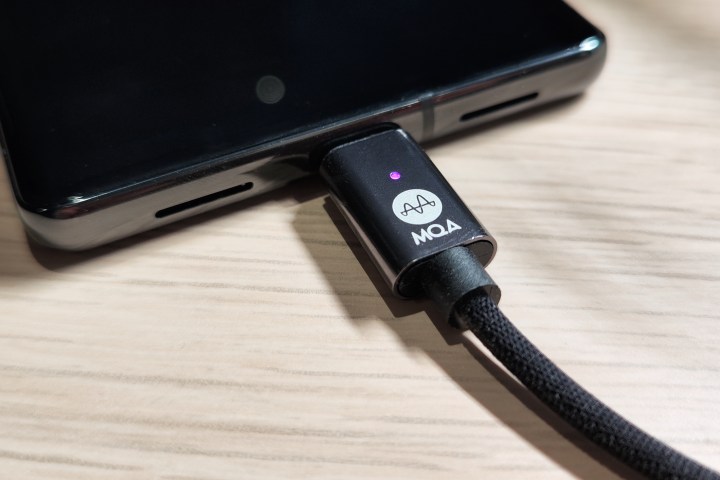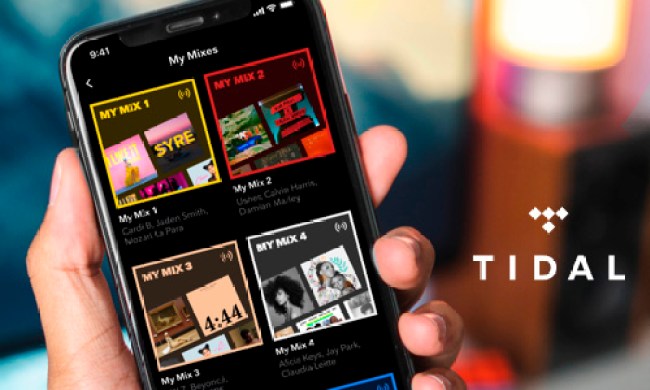
MQA, the embattled U.K. audio technology company founded by Bob Stuart, has a new owner in Canada-based Lenbrook, the parent company of Bluesound, NAD, and PSB Speakers. Financial details haven’t been revealed, but Lenbrook says it has acquired all MQA assets, including the company’s two key pieces of intellectual property — the MQA and SCL-6 audio codecs. Prior to today’s announcement, MQA had been mired in administration, a British business status that’s similar to Chapter 11, and was seeking new ownership after a major investor exited the company.
“We view this acquisition as an opportunity to ensure the technologies developed by the scientists and engineers at MQA continue to serve the industry’s interests rather than be confined to any single brand or company,” Gordon Simmonds, Lenbrook’s CEO, said in a press release that outlined the acquisition.
The MQA codec is considered by some to offer many of the benefits of lossless, hi-res audio codecs like FLAC, but with smaller file sizes, improved audio quality, and some additional features like being able to visually confirm that the song you’re listening to is the version its creator wanted you to hear. However, unlike FLAC, which is open source and royalty-free, MQA is proprietary, and any entity (from streaming services to record labels, to audio equipment makers) that wants to use MQA must pay a licensing fee.
Many record labels and audio equipment companies have become MQA licensees over the years, including Lenbrook’s own wireless whole-home sound system brand, Bluesound, as well as a few products made by NAD. However, Tidal remains the only major streaming music service that has ever offered MQA-encoded tracks to its subscribers, and in 2023, Tidal has been busy making major changes that will eventually see it transition its entire hi-res library of songs to the FLAC format. In fact, without Tidal’s support, music created using the MQA format could become very difficult to access.
Lenbrook’s substantial investments in MQA support across its Bluesound portfolio of products (it considers itself “one of MQA’s most significant licensees”), combined with Tidal’s efforts to reduce its reliance on MQA, makes the acquisition something of a necessity for Lenbrook. Controlling MQA’s assets lets it preserve or negotiate any of the more than 120 existing MQA licensing deals, which could provide much-needed stability for Lenbrook and the greater MQA ecosystem.
Lenbrook said its primary objective in this acquisition was to provide certainty for business and technical developments that were underway prior to MQA’s administration. One of those developments almost certainly is PSB Speakers and MQA’s partnership to release the first set of wireless headphones that use ultra-wideband (UWB) instead of Bluetooth for connectivity. For that initiative to work, PSB Speakers will likely rely on both the MQA and SCL-6 codecs. SCL-6 was initially branded as MQair. Among its other claimed benefits, it can transmit the MQA codec intact over a wireless connection. Competing codecs, like AAC, aptX, and LDAC, can’t do so because of the way they compress audio before transmitting it.
To keep things moving from a technical standpoint, Lenbrook says it’s retaining a core group of MQA’s engineers, developers, and sales and marketing team members. Lenbrook only mentioned one of these employees by name: Andy Dowell, previously the head of licensing for MQA. Notably absent from the announcement was any mention of Stuart, MQA’s founder, however Digital Trends has since learned that while Stuart won’t be joining the new team at Lenbrook, he will act as an adviser to the company’s leadership on MQA / SCL-6 product development.
Presumably, one of Lenbrook’s first missions will be to solve the Tidal problem. That could mean Tidal gets to keep its MQA catalog at a reduced licensing cost. Or if a deal can’t be reached, Lenbrook could try to structure an MQA partnership with one of Tidal’s competitors. Apple Music, Amazon Music, and Qobuz all have existing hi-res libraries in either FLAC or ALAC, which makes them unlikely partners — unless those services feel that acquiring some or all of Tidal’s MQA-loyal subscribers would make it worthwhile.
Alternatively, Spotify has been circling the hi-res arena for years, and a favorable deal with Lenbrook might finally provide the incentive it needs to launch its much-promised, but as yet undelivered Hi-Fi tier. Licensing MQA would give it a way to launch that new tier without it simply looking like a carbon copy of Apple Music and other services.


